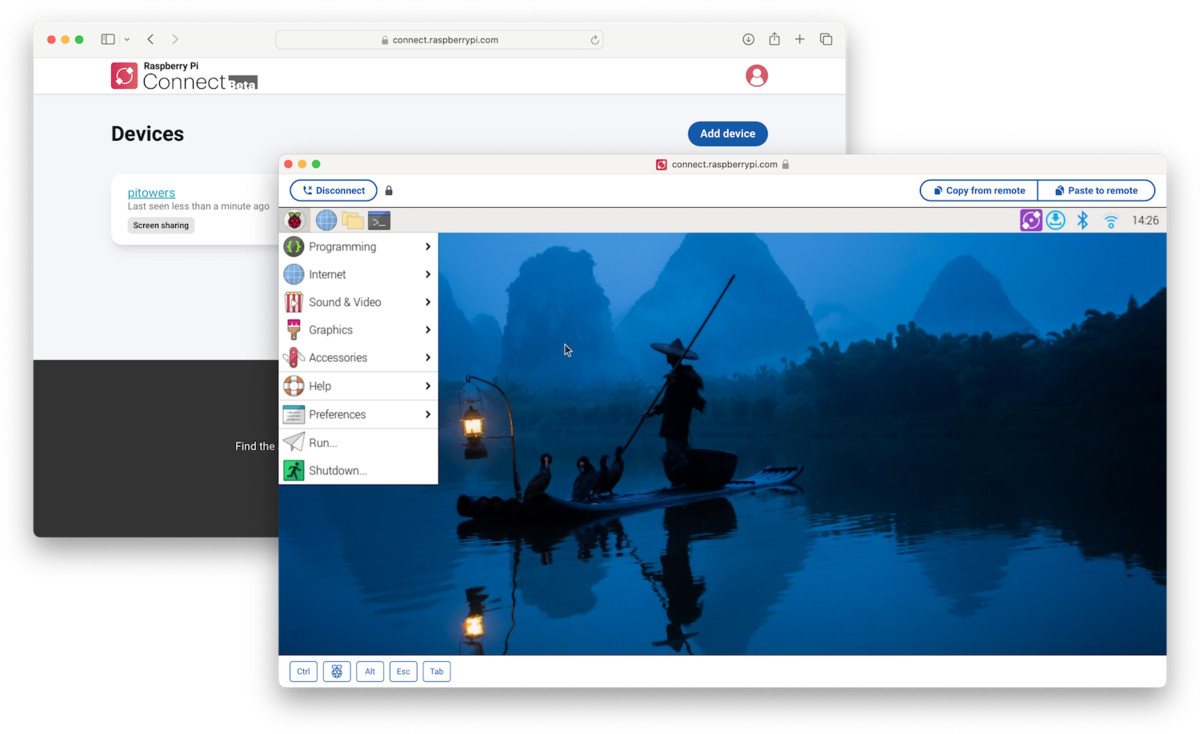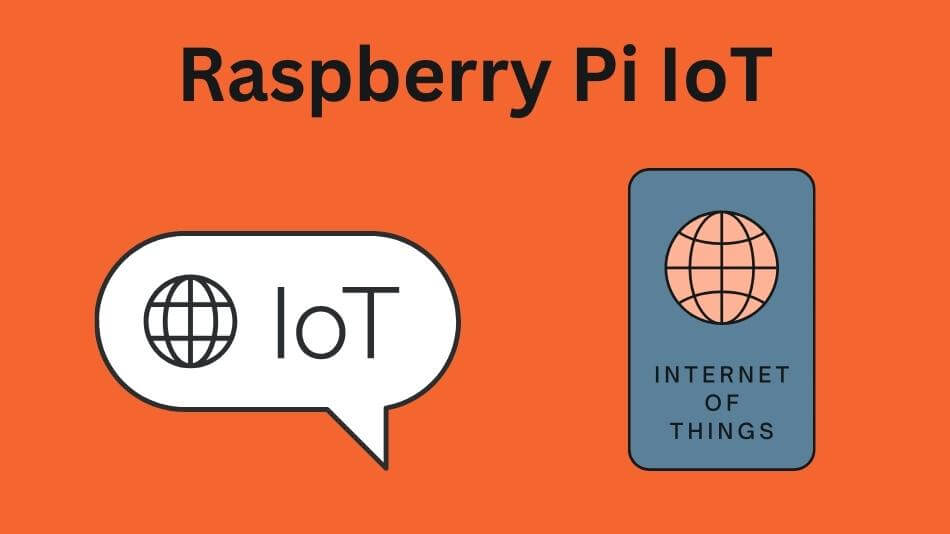Are you looking to download Raspberry Pi RemoteIoT for free and integrate it into your IoT projects? This powerful software enables seamless control and monitoring of IoT devices using Raspberry Pi. Whether you're a beginner or an experienced developer, understanding how to set up and use Raspberry Pi RemoteIoT can significantly enhance your IoT capabilities.
Raspberry Pi RemoteIoT has become a popular choice for hobbyists and professionals alike due to its flexibility and ease of use. This article will guide you step-by-step on how to download Raspberry Pi RemoteIoT for free, configure it, and utilize its features effectively.
In this comprehensive guide, we will explore everything you need to know about Raspberry Pi RemoteIoT, from installation to troubleshooting common issues. By the end of this article, you'll be equipped with the knowledge to harness the full potential of this software in your IoT projects.
Read also:Simarjeet Singh
Table of Contents
- Introduction to Raspberry Pi RemoteIoT
- Key Features of Raspberry Pi RemoteIoT
- How to Download Raspberry Pi RemoteIoT for Free
- Installation Process
- Setting Up Raspberry Pi RemoteIoT
- Integrating with IoT Devices
- Benefits of Using Raspberry Pi RemoteIoT
- Common Issues and Troubleshooting
- Alternatives to Raspberry Pi RemoteIoT
- Conclusion and Call to Action
Introduction to Raspberry Pi RemoteIoT
Raspberry Pi RemoteIoT is an open-source software designed to facilitate remote control and monitoring of IoT devices through Raspberry Pi. It allows users to interact with sensors, actuators, and other IoT components via a web-based interface or mobile application. This makes it an ideal choice for both personal and commercial IoT projects.
This software is highly customizable and can be tailored to meet specific project requirements. Whether you're building a smart home automation system, a weather monitoring station, or an industrial automation solution, Raspberry Pi RemoteIoT provides the tools you need to bring your ideas to life.
Why Choose Raspberry Pi RemoteIoT?
Raspberry Pi RemoteIoT stands out due to its:
- Open-source nature, making it free to download and modify.
- Compatibility with a wide range of IoT devices and protocols.
- Active community support for troubleshooting and development.
- Scalability to accommodate growing project needs.
Key Features of Raspberry Pi RemoteIoT
Raspberry Pi RemoteIoT offers a variety of features that make it a versatile tool for IoT enthusiasts:
1. Remote Access
With Raspberry Pi RemoteIoT, you can access and control your IoT devices from anywhere in the world. This is particularly useful for monitoring systems that require real-time data updates, such as security cameras or environmental sensors.
2. Customizable Interface
The software allows users to create personalized dashboards and interfaces, making it easier to manage multiple devices and functions simultaneously.
Read also:Justin Herbert
3. Support for Multiple Protocols
Raspberry Pi RemoteIoT supports various communication protocols, including MQTT, HTTP, and WebSocket, ensuring seamless integration with different types of IoT devices.
How to Download Raspberry Pi RemoteIoT for Free
Downloading Raspberry Pi RemoteIoT is a straightforward process. Follow these steps to get started:
- Visit the official Raspberry Pi RemoteIoT repository on GitHub (https://github.com).
- Locate the latest release of Raspberry Pi RemoteIoT and click on the "Download ZIP" button.
- Extract the downloaded ZIP file to a directory of your choice on your computer.
Tips for a Successful Download
Ensure that your internet connection is stable during the download process to avoid interruptions. Additionally, verify the authenticity of the downloaded file by checking its hash value against the one provided on the GitHub page.
Installation Process
Once you have downloaded Raspberry Pi RemoteIoT, the next step is to install it on your Raspberry Pi. Here's a step-by-step guide:
Step 1: Install Required Dependencies
Open the terminal on your Raspberry Pi and run the following commands to install necessary dependencies:
sudo apt update
sudo apt install python3-pip python3-venv
Step 2: Create a Python Virtual Environment
Create a virtual environment for Raspberry Pi RemoteIoT to isolate its dependencies:
python3 -m venv remoteiot-env
source remoteiot-env/bin/activate
Step 3: Install Raspberry Pi RemoteIoT
Navigate to the extracted Raspberry Pi RemoteIoT directory and install the software using pip:
pip install -r requirements.txt
Setting Up Raspberry Pi RemoteIoT
After installation, you need to configure Raspberry Pi RemoteIoT to work with your specific IoT setup. Here's how:
1. Configure Network Settings
Edit the configuration file to set up network parameters such as IP address and port number. This ensures that Raspberry Pi RemoteIoT can communicate with your IoT devices over the network.
2. Add IoT Devices
Register your IoT devices in the Raspberry Pi RemoteIoT dashboard. Provide details such as device type, communication protocol, and unique identifiers.
3. Test Connectivity
Perform a connectivity test to verify that Raspberry Pi RemoteIoT can successfully communicate with your IoT devices. This step is crucial to ensure smooth operation.
Integrating with IoT Devices
Raspberry Pi RemoteIoT can integrate with a wide range of IoT devices. Below are some examples:
1. Smart Home Devices
Use Raspberry Pi RemoteIoT to control smart lights, thermostats, and security systems remotely. This enhances convenience and energy efficiency in your home.
2. Environmental Sensors
Monitor temperature, humidity, and air quality using Raspberry Pi RemoteIoT. This is particularly useful for agricultural and industrial applications.
3. Industrial Automation
Implement Raspberry Pi RemoteIoT in industrial automation projects to monitor and control machinery remotely. This improves productivity and reduces downtime.
Benefits of Using Raspberry Pi RemoteIoT
Using Raspberry Pi RemoteIoT offers numerous advantages:
1. Cost-Effective
Being open-source, Raspberry Pi RemoteIoT eliminates the need for expensive proprietary software, making it an affordable solution for IoT projects.
2. Scalable
As your project grows, Raspberry Pi RemoteIoT can easily scale to accommodate additional devices and functions without compromising performance.
3. Community Support
With an active community of developers, you can find ample resources, tutorials, and support to help you overcome any challenges you may encounter.
Common Issues and Troubleshooting
While Raspberry Pi RemoteIoT is a robust software, you may encounter some issues during setup or operation. Here are solutions to common problems:
1. Connectivity Issues
If you experience connectivity problems, check your network settings and ensure that all devices are properly configured.
2. Software Errors
In case of software errors, refer to the official documentation or seek help from the community forums. Often, updating to the latest version resolves such issues.
Alternatives to Raspberry Pi RemoteIoT
While Raspberry Pi RemoteIoT is an excellent choice, there are other software options available for IoT projects:
1. Node-RED
A visual programming tool for wiring together IoT devices, APIs, and online services.
2. Home Assistant
An open-source home automation platform that integrates with a wide range of smart devices.
3. OpenHAB
A vendor- and technology-neutral automation software for smart homes.
Conclusion and Call to Action
Raspberry Pi RemoteIoT is a powerful and versatile tool for IoT enthusiasts. By following the steps outlined in this guide, you can successfully download, install, and configure Raspberry Pi RemoteIoT for your projects. Its open-source nature, scalability, and active community support make it an ideal choice for both beginners and experienced developers.
We encourage you to share your experiences and projects using Raspberry Pi RemoteIoT in the comments section below. Additionally, don't forget to explore our other articles on IoT and Raspberry Pi for more insights and tips. Happy building!


